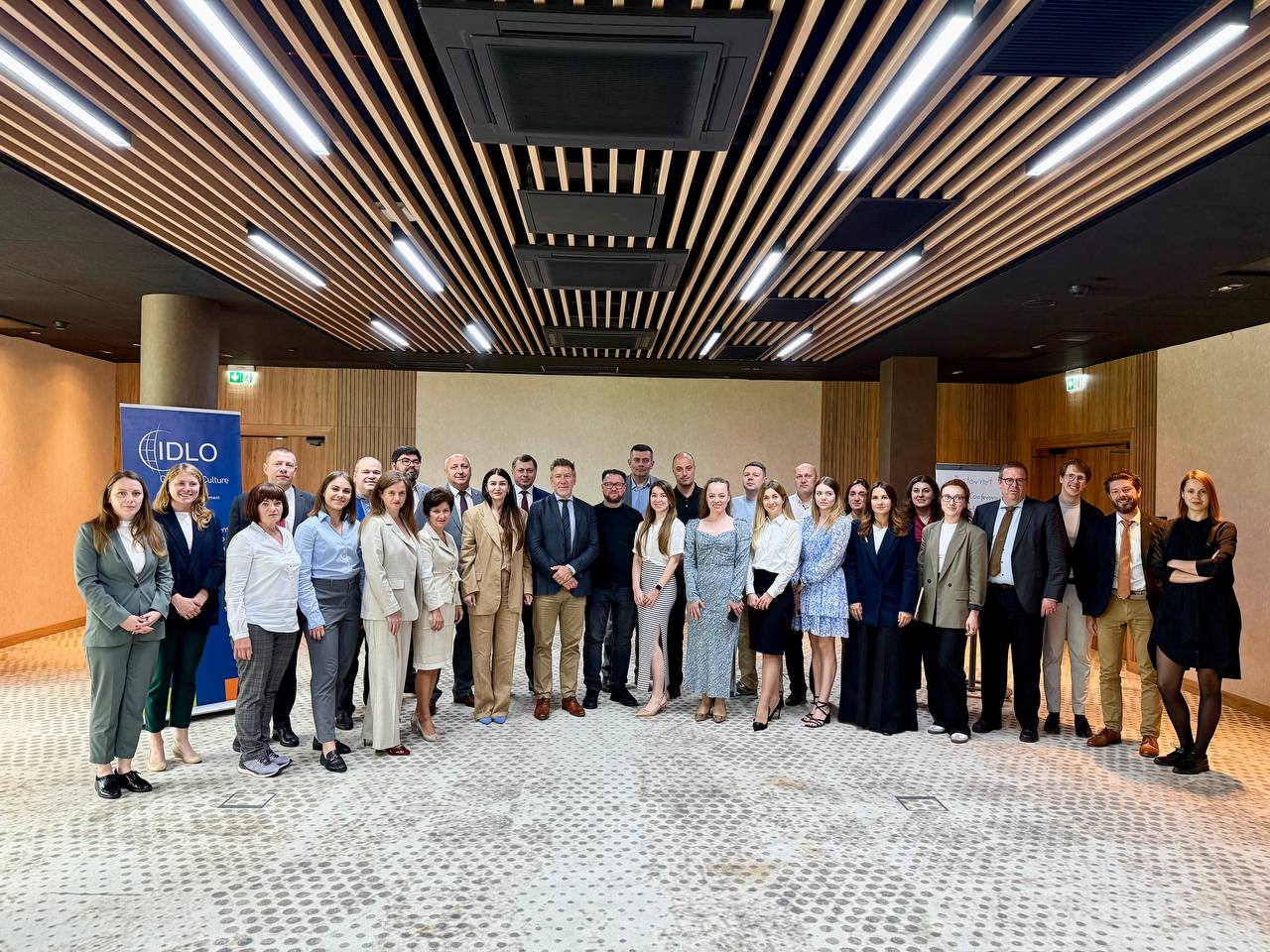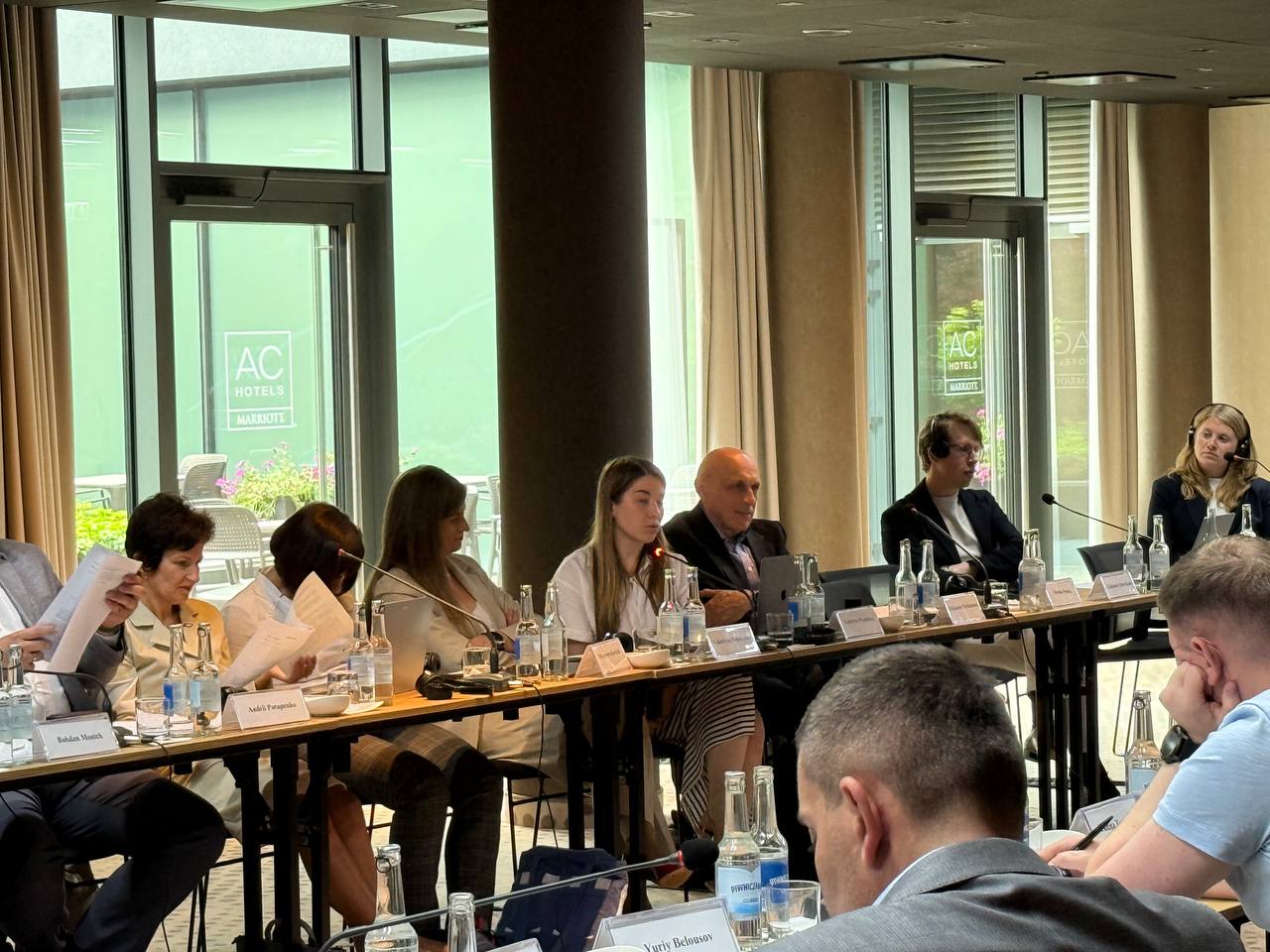Expert Consultations: UBA’s Engagement in Strategic Dialogue on Justice for International Crimes
On 17–18 June 2025, international expert consultations were held in Kraków (Poland) to explore effective mechanisms for ensuring accountability for international crimes committed in Ukraine, as well as broader issues of justice sector reform in the context of wartime. The event was organized by the International Development Law Organization (IDLO) in partnership with the T.M.C. Asser Instituut, the Center for International Legal Cooperation (CILC), and the Netherlands Helsinki Committee (NHC), with the support of the Ministry of Foreign Affairs of the Netherlands.
Participants included representatives of the Office of the Prosecutor General, the National Police of Ukraine, the Ministry of Justice, the Council of Judges, the High Council of Justice, the National School of Judges, as well as judges, international experts, representatives of civil society (including the Ukrainian Helsinki Human Rights Union and the Human Rights Center ZMINA), and the Ukrainian Bar Association (UBA).
The event’s program was structured in line with the logic of the criminal justice process — from investigation to the execution of the sentence. Alongside technical aspects, the discussions touched on broader questions: how to ensure access to justice, respect for human rights, balance of interests between parties, and the capacity of the national justice system to respond to the scale of crimes committed as a result of armed aggression. Particular attention was paid to the role of civil society as a critical actor in transparency, oversight, and support throughout the justice process. All sessions integrated key cross-cutting issues, including the protection of victims and witnesses, trauma-informed approaches, child-friendly justice, and the integration of digital tools.

The Ukrainian Bar Association was represented by Kateryna Pyshchyk, Project Manager, who spoke during the session dedicated to the role of defence in cases involving international crimes. She emphasized that the defence function often remains outside the focus of justice sector reforms: lack of state leadership in shaping policy in this area, fragmented training efforts, stigmatization of lawyers handling conflict-related cases, and limited opportunities for professional growth all present serious challenges for Ukraine’s justice system. Among the important steps forward, she stressed, is the ratification of the Council of Europe Convention on the Profession of Lawyer.

"We work every day with the resources we have — conducting court monitoring, implementing mentorship programs, and delivering targeted training. But without systemic cooperation, these efforts cannot become sustainable. We need partnership support — including to build lasting institutional capacity," Pyshchyk noted during her remarks.
The consultations provided a space for deep exchange of experience and helped outline priority directions for future work. Participants reached a shared understanding of the importance of coordinated actions and strategic collaboration among all stakeholders — from government institutions to independent experts and civil society organizations.
The Ukrainian Bar Association expresses its sincere gratitude to the organizers for the invitation and the opportunity to be part of this important dialogue. Such platforms not only contribute to forming professional consensus but also help shape a vision of Ukrainian justice that is fair, transparent, and capable of meeting today’s challenges.
